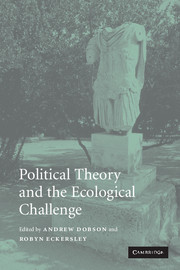10 - The state
Published online by Cambridge University Press: 06 July 2010
Summary
‘The view of world order to which we have fallen heir is dominated by the conception of statehood’ (MacCormick 1996: 554). The deeply entrenched statism of both political theory and international relations has many sources. For some, it rests simply on the historical rise of the modern state as the dominant form of social and political order and on its continued strength as both a source of authority and an apparatus of power in the face of would-be challengers and potential competitors, be they transnational firms, international organisations or transnational social movements. For others, it rests on the role of the nation state as the primary focus for human loyalty and communal allegiance. But, whatever its foundations, it is impossible to ignore the immense power of the idea and ideology of the state in the Western political imagination and the way in which this ideology became globalised in the course of European imperial expansion and in the process of decolonisation. The emergence of the modern state was complex, the history of state formation contested, and the variety of actually existing states and the inequalities amongst them have always been hard to square with the ideal-typical character of the ‘modern state’. But, once established, the state came to dominate the ontological landscape of politics, as well as many of the most powerful traditions of political theory, moral reflection and international legal analysis.
- Type
- Chapter
- Information
- Political Theory and the Ecological Challenge , pp. 165 - 182Publisher: Cambridge University PressPrint publication year: 2006
References
- 3
- Cited by



